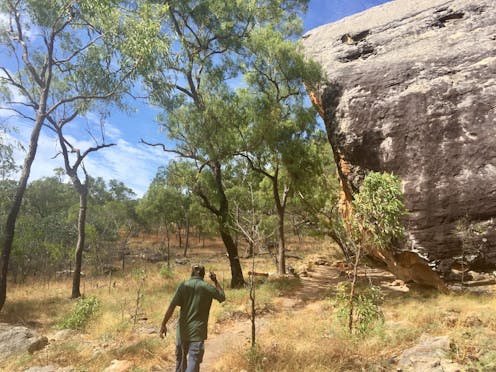Budj Bim's world heritage listing is an Australian first – what other Indigenous cultural sites could be next?
- Written by Claire Smith, Professor of Archaeology, College of Humanities, Arts and Social Sciences, Flinders University
 Ranger Trevor Bramwell on the walk up to the Split Rock art galleries in Cape York's Quinkan Country in 2017. Rebekah Ison/AAP
Ranger Trevor Bramwell on the walk up to the Split Rock art galleries in Cape York's Quinkan Country in 2017. Rebekah Ison/AAPThe Budj Bim Cultural Landscape in south-west Victoria is the first Indigenous Australian landscape to be gazetted on the World Heritage List purely for its cultural values.
This listing breaks an invisible barrier: even...





